By Marc DelMonico & Harry Dudley
The U.S. has only 5% of the world’s population but we house 25% of the world’s prisoners! Since 1970, our incarcerated population has increased by 700%. 2.3 million people are in prison today. Some have clearly committed terrible crimes and are serving a just sentence, but many more are low-level nonviolent offenders serving disproportionate sentences, and some have even been wrongly convicted. In these cases, the label “mass incarceration” may make it hard to see the persons affected.
Here are the personal stakes: Fathers are wearing green. Mothers are wearing orange. Sisters or brothers may be “upstate.” Loved ones are spending time in detention centers or being handcuffed and driven away in the back of patrol cars, or worse, being mistreated in police custody or prison.
Persons, families and communities are being destroyed by our current prison system. Recent research indicates the negative effects on those who cycle through the system, and on those who are dear to them.
Pope Francis has modeled how Catholics should respond. He visits prisons wherever he travels. He reminds us of the call in Matthew 25 to do so. He also points out how Catholic Social Teaching challenges us to affirm the dignity of those incarcerated or detained. He doesn’t define them by, or write them off because of, the worst thing they may have ever done. He emphasizes that we should accompany the marginalized in our society. Few are more marginalized than those in prison and detention centers, along with their families!
During the 2018 V Encuentro meeting in Orlando, the following recommendations were made:
- Educate all Catholics on these needs through a restorative justice lens, and provide financial support for resources and programs
- Provide formation for prison ministry pastoral leaders and volunteers
- Provide access for the incarcerated to the sacraments, services, and resources
- Provide pastoral care to the families and loved ones of the incarcerated.[1]
In April 2018, 33 different national Catholic organizations met in Washington with bishops and staff from the USCCB, to look at how Catholics could respond to these needs. The Catholic Prison Ministries Coalition (CPMC) was formed.
CPMC promotes ministry to all those affected by incarceration. It resources, trains, supports and empowers those who feel called to this ministry. It embodies a national Catholic ecclesial response and enables sharing of resources and best practices. CPMC strengthens the Church’s mission to advance restorative justice and uphold the dignity of every human person.
CPMC is closely aligned with the National Association for Catholic Chaplains, which has been meeting together with a partner group creating national competencies and formation resources for pastoral care ministers in diverse settings. Competencies for each of these areas aligned with the four areas of formation – human, spiritual, intellectual and pastoral – which are found in the USCCB statement on lay ecclesial ministry, Co-Workers in the Vineyard of the Lord.
One critical emphasis of this Partners in Pastoral Care Project is to promote criminal justice ministry competencies, which are now available in English and Spanish. CPMC has embraced these competencies and produced a growing series of webinars that fulfill important content for an initial offering of what is called “Prison Ministry 101,” a foundational pathway for volunteers to be trained and certified using these competencies. This formation process is now being piloted. Two other pathways are in the development stage for those in this ministry with leadership responsibilities requiring more formation and accountability. It is hoped that, through the work of the NACC, the USCCB’s Subcommittee on Certification for Ecclesial Ministry and Service, which has already commended this work, will be able to review and approve all of these pathways of certification as a national resource for dioceses and ministry programs.
While the challenges of mass incarceration are many, these formation resources are being made available to help Catholics follow the example of Pope Francis and address the recommendations made by the V Encuentro for this vital ministry to the marginalized. Please consider supporting these efforts by learning more about them. If you are already involved in this ministry, share what you are doing and help CPMC to promote your efforts.
[1] Cf. USCCB, Proceedings and Conclusions of the V National Encuentro of Hispanic / Latino Ministry, 2019. See Area # 24, “Ministry to the Incarceration and Detained” Bearing Fruit, p. 40.
This article first appeared in the Spring / Summer 2020 newsletter of the USCCB Secretariat of Cultural Diversity in the Church “One Church, Many Cultures: The Good News of Cultural Diversity.” This version includes an image which does not appear in the original.
* * *
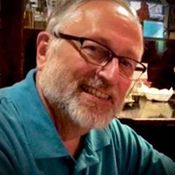 Harry J. Dudley, D.Min. is a member of NALM’s Advocacy Committee and the both the Leadership team and Formation committee of the Catholic Prison Ministries Coalition (www.catholicprisonministries.org.) In 2019, he received the NACC (www.nacc.org) Outstanding Colleague Award for his support of and contribution to advancing the profession of spiritual and pastoral care. Upon retiring from the USCCB in 2018, he and his wife, Patricia, inspired by Pope Francis’ call for all Catholics to “accompaniment”, created Ambulans Vobiscum Consulting to focus on helping non-profits and churches develop curriculum, leaders and formation for service. He can be reached at [email protected]
Harry J. Dudley, D.Min. is a member of NALM’s Advocacy Committee and the both the Leadership team and Formation committee of the Catholic Prison Ministries Coalition (www.catholicprisonministries.org.) In 2019, he received the NACC (www.nacc.org) Outstanding Colleague Award for his support of and contribution to advancing the profession of spiritual and pastoral care. Upon retiring from the USCCB in 2018, he and his wife, Patricia, inspired by Pope Francis’ call for all Catholics to “accompaniment”, created Ambulans Vobiscum Consulting to focus on helping non-profits and churches develop curriculum, leaders and formation for service. He can be reached at [email protected]
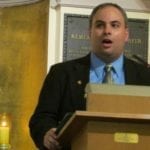 Marc DelMonico, Ph.D., is the Director of the Office of Certification for Ecclesial Ministry and Service at the United States Conference of Catholic Bishops, where he collaborates with and resources a subcommittee of the bishops’ conference, dioceses, and national organizations seeking to develop and enhance promotion, recruitment, formation, certification and recognition of lay ecclesial ministers (https://usccb.org/certification). Marc is a professional theologian and ministry & communications consultant for Catholic and Christian parishes, communities and organizations. You can read more about him and his most recent work at his professional website: https://churchmd.com
Marc DelMonico, Ph.D., is the Director of the Office of Certification for Ecclesial Ministry and Service at the United States Conference of Catholic Bishops, where he collaborates with and resources a subcommittee of the bishops’ conference, dioceses, and national organizations seeking to develop and enhance promotion, recruitment, formation, certification and recognition of lay ecclesial ministers (https://usccb.org/certification). Marc is a professional theologian and ministry & communications consultant for Catholic and Christian parishes, communities and organizations. You can read more about him and his most recent work at his professional website: https://churchmd.com

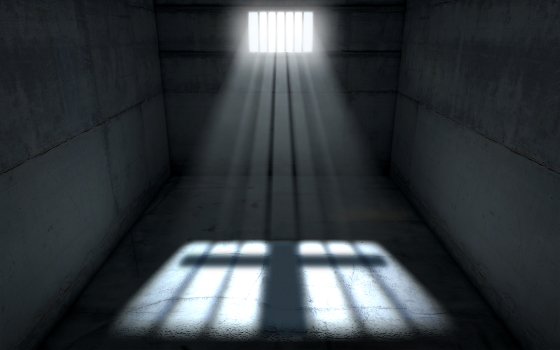
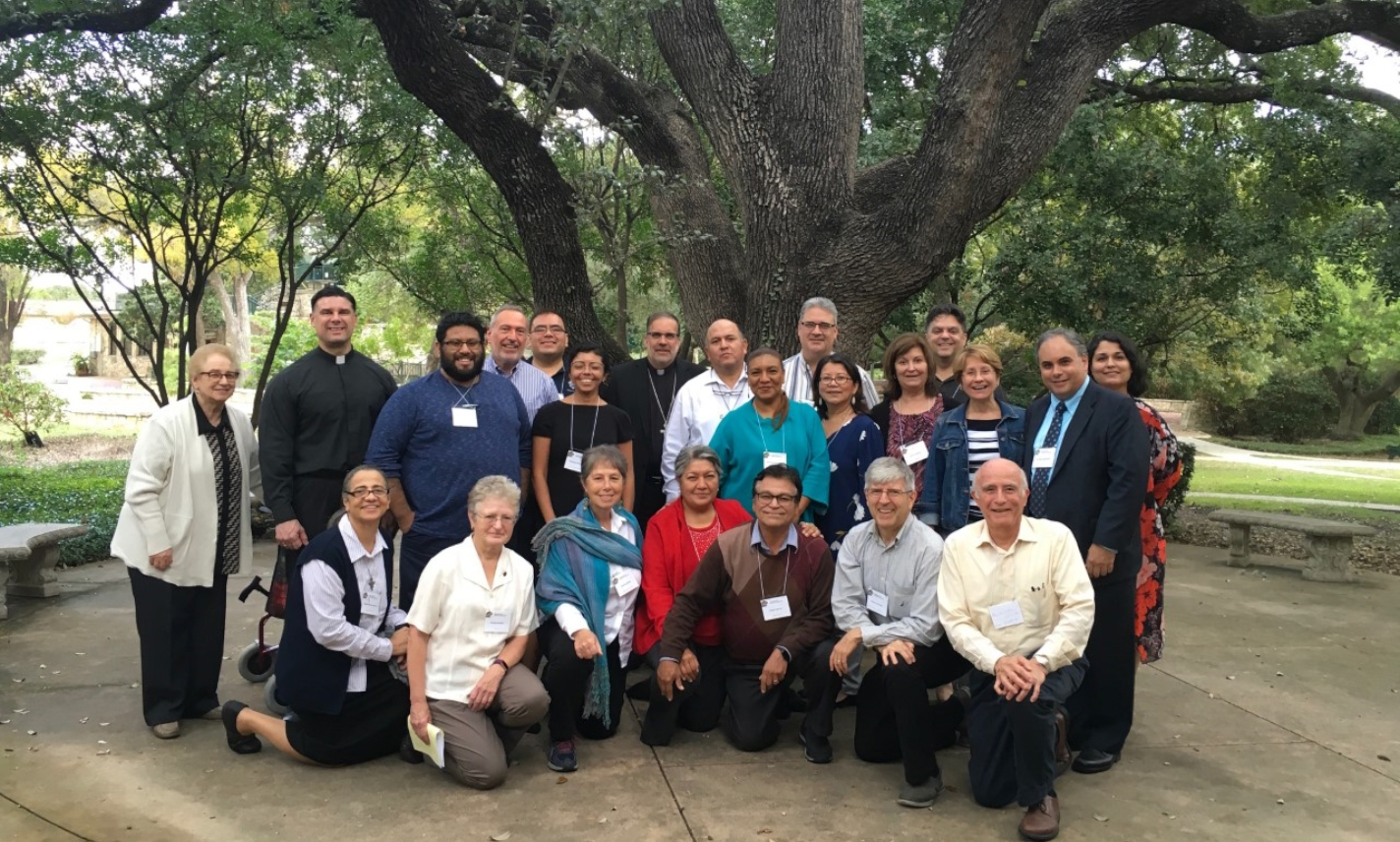
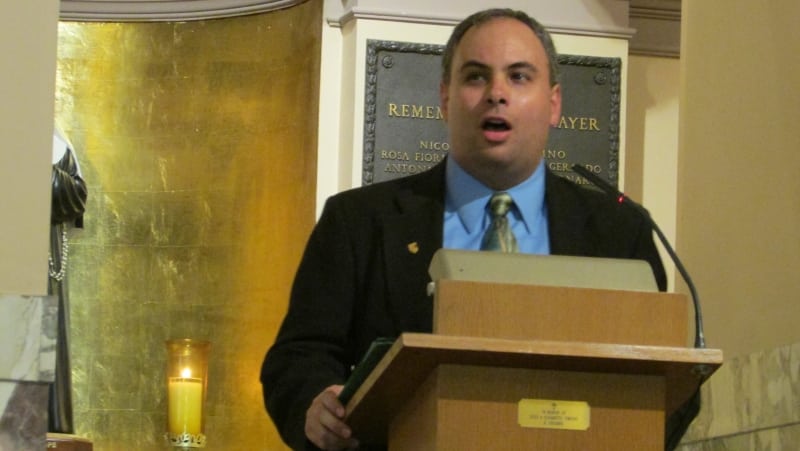 Request Dr. DelMonico's professional services for a liturgical, ministerial or leadership consultation, or for an academic or public presentation.
Request Dr. DelMonico's professional services for a liturgical, ministerial or leadership consultation, or for an academic or public presentation.